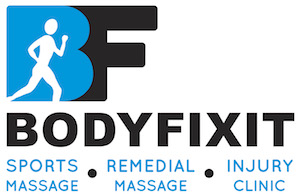April is Stress Awareness Month and this year’s theme, #LittleByLittle, perfectly captures the importance of taking small, consistent steps towards managing stress in our daily lives. But why is stress awareness so important?

Understanding Stress
The Enemy We Know (But Often Ignore)
Stress is a natural response to challenging situations. However, chronic or unmanaged stress can have a significant impact on our physical and emotional well-being.
Ignoring the warning signs can lead to:
- Emotional symptoms: Anxiety, irritability, difficulty concentrating, and even depression.
- Physical symptoms: Headaches, muscle tension, fatigue, digestive issues, and sleep problems.
Stress Manifests in Many Ways:
Stress doesn’t always announce itself with a bang. It can be subtle, masquerading as various physical or emotional symptoms. Pay attention to your body and mind. Here are some common signs:
- Feeling constantly on edge
- Difficulty relaxing or unwinding
- Changes in appetite
- Increased use of alcohol or caffeine
- Frequent headaches or muscle tension
- Difficulty sleeping

The Sneaky Side of Stress: Why Awareness Matters
One of the biggest challenges with stress is that it can creep up on us slowly, often going unnoticed until it starts significantly impacting our lives. We get used to feeling constantly on edge, fatigued, or irritable, mistakenly believing it’s “just the way things are.”
Here’s why stopping and taking stock of your stress levels is crucial:
- Stress Can Disguise Itself: The signs of stress can often be subtle and dismissed as everyday aches or worries. Paying attention to changes in your mood, sleep patterns, and energy levels is vital.
- Ignoring Stress Makes it Worse: Unacknowledged stress continues to build, potentially leading to more serious health issues down the line.
- Self-Awareness is Your Superpower: Taking time to reflect on your emotional and physical state empowers you to identify stress early on and take steps to manage it effectively.
Here are some tips for practicing self-awareness and recognising stress:
- Schedule Regular Check-Ins: Set aside some quiet time each day or week to simply assess how you’re feeling. Notice your body sensations, emotions, and overall energy levels.
- Journaling: Writing down your thoughts and feelings can be a powerful tool for self-discovery and stress identification.
- Listen to Your Body: Physical symptoms like muscle tension, headaches, or changes in sleep patterns can be red flags for underlying stress.
By becoming more aware of your stress triggers and early warning signs, you can take proactive steps towards a calmer and healthier you.

Breaking Free from the Grip of Stress: #LittleByLittle Solutions
Fortunately, there are many ways to manage stress and cultivate inner peace. Here are some broad approaches:
- Healthy Habits: Prioritise regular exercise, a balanced diet, and quality sleep.
- Mindfulness Techniques: Meditation, deep breathing exercises, and spending time in nature can be incredibly calming.
- Connecting with Others: Social interaction and support systems are vital for stress reduction.

At Bodyfixit, we understand the modern struggle with stress, and we’re here to help you incorporate self-care into your routine. Both Massage & Pilates can become your #LittleByLittle stress-fighting allies.
A targeted massage session can melt away muscle tension caused by stress, promoting relaxation and improving sleep quality.
Pilates isn’t just about physical conditioning; it’s a holistic practice that addresses both the body and mind. This makes it a powerful tool for stress management, offering a variety of benefits:
- Mind-Body Connection: Pilates emphasises the connection between your physical movements and your mental state. By focusing on controlled movements and precise breathing, you encourage present-moment awareness, quieting the mind and reducing stress hormones.
- Breathwork Magic: Deep, mindful breathing is a cornerstone of Pilates. This controlled breathing technique helps regulate the nervous system, promoting relaxation and reducing anxiety. As you focus on your breath, worries and anxieties fade away, leaving you feeling calmer and more centered.
- Stronger Body, Calmer Mind: Pilates strengthens core muscles, improves flexibility, and enhances posture. This not only improves physical well-being but also boosts confidence and self-esteem, further reducing stress levels.
- Stress Release Through Movement: Gentle, controlled movements in Pilates help release built-up tension in muscles, a common side effect of stress. As your body relaxes, so does your mind, promoting a sense of peace and well-being.
- A Moment of Me-Time: Taking an hour for a Pilates class allows for much-needed self-care, a crucial component of stress management. It provides a dedicated space to focus on your body and mind, leaving you feeling refreshed and rejuvenated.

Taking care of yourself isn’t selfish; it’s essential. Schedule time for activities you enjoy, whether it’s reading a book, spending time in nature, or simply enjoying a relaxing massage.
Remember, #LittleByLittle steps towards stress management contribute to a happier, healthier you.

